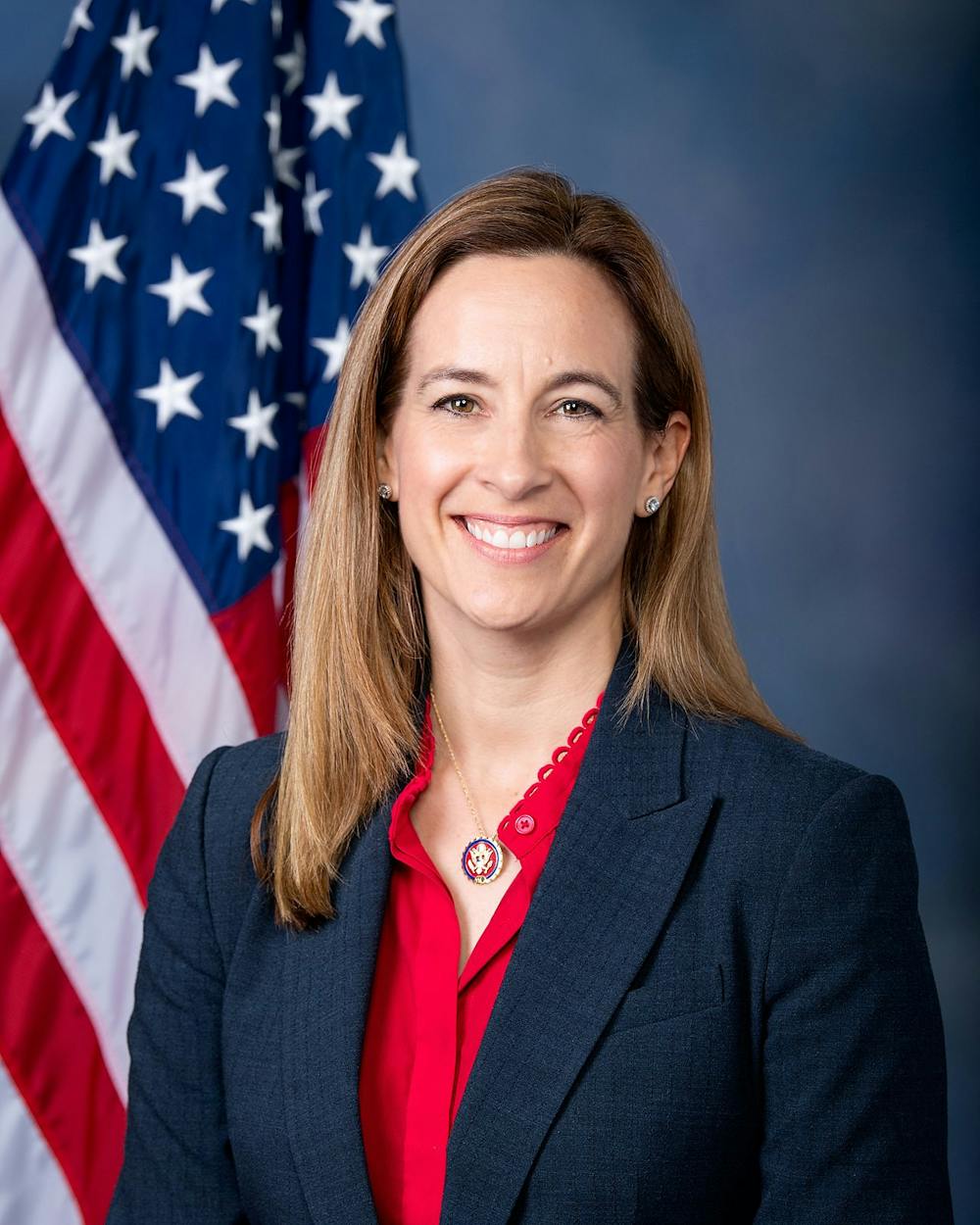By Isabella Darcy
Managing Editor
Democrat Mikie Sherrill was elected governor by a surprisingly wide margin over Republican Jack Ciattarelli on Tuesday to become the first woman from her party to lead the Garden State.
With almost 90% of ballots counted, Sherrill had 56% of the vote to Ciattarelli’s 44%, according to The Associated Press, which called the race for Sherrill less than 90 minutes after polls closed.
“Serving you is worth any tough fight I have to take on and I am incredibly honored to be your next governor,” Sherrill said during a victory speech at her watch party at the Hilton hotel in East Brunswick. “Governors have never mattered more, and in this state, I am determined to fulfill prosperity for all of our citizens.”
New Jersey has had only one female governor, Republican Christie Whitman, who took office in 1994. Sherrill and her lieutenant governor running mate, Centenary University President Dale Caldwell, will take office in January.
Sherrill, 53, a member of Congress and Navy veteran, and Ciattarelli, a 63-year-old former Assembly member and ally of President Donald Trump, faced off to succeed two-term Democrat Phil Murphy. New Jersey governors are constitutionally barred from seeking a third consecutive term.
Polls had showed the candidates far closer, and at one point in a dead heat.
“Our job doesn’t end,” Ciattarelli said during a concession speech at his watch party at the Bridgewater Marriott hotel in Somerset County. “Yes, Republicans are the minority party, but that means also being the loyal opposition and continuing to ensure that our voice is heard.”
New Jersey voters also were choosing all 80 members of the General Assembly, which Democrats dominate 52-28. As of 11 p.m., many races were undecided, though Democrats were certain to remain in control.
Other races
In Virginia, the only other state with a gubernatorial election this year, Democrat Abigail Spanberger, a former member of Congress, defeated Republican Winsome Earle-Sears, the lieutenant governor. In New York City, Democrat Zohran Mamdani won the mayor’s race.
The three contests were being watched nationally to gauge voter sentiment about the president and the 2026 congressional midterms that will determine whether Republicans maintain control.
“Tens of thousands of New Jerseyans told Trump that we will never stand down to his attacks,” Caldwell told the crowd at the Sherrill gathering.
In Jersey City, New Jersey’s second-largest municipality by population, the race to replace three-term Mayor Steve Fulop was heading to a runoff. Councilman James Solomon will face another candidate, yet to be determined, on Dec. 2. Among the candidates was Jim McGreevey, the former New Jersey governor who resigned amid a sex scandal in 2004.
Groceries and utility bills
New Jersey voters cited affordability, property taxes and utility costs as some of their top priorities.
Democrats and Republicans alike said they were aggravated by high prices for automobiles, appliances, groceries and other goods, and wanted a lower cost of living. Both candidates ran on promises to do just that.
Ciattarelli, in his third bid for governor, pledged to revamp how state aid is distributed to schools and said he would veto lawmakers’ pet projects, which add hundreds of millions of dollars to the state budget.
His campaign often invoked his grandparents, who had immigrated from Italy and became business owners.
“It is my hope that Mikie Sherrill has heard us in terms of what we need to do to make New Jersey that place where everyone once again feels they can achieve the American dream,” Ciattarelli told his supporters.
Sherrill said she supports consolidating school districts to drive down property taxes and wants to offer incentives to local grocers to spur competition and lower prices.
New Jerseyans also want a solution to rising energy prices. Electricity bills climbed an average 20% in June due to an annual wholesale power auction, and a spike is expected next year as well.
In an effort to freeze utility rates, Sherrill promised to declare a state of emergency on her first day as governor. Ciattarelli, who praised Trump’s ban on offshore wind farms, said he would rely more on natural gas and nuclear power as energy sources.
The Trump administration also was on voters’ minds. Forty percent of New Jerseyans approve of the way the president is doing his job, while 56% disapprove, according to a Quinnipiac University poll released on Oct. 30. The survey, of 1,166 likely voters contacted from Oct. 23-28, has a margin of error of plus or minus 3.8%.
The competitive race drew significant spending from both parties, especially by Democrats. Combined costs of both the primary and general elections make this race the most expensive in state history, according to the New Jersey Election Law Enforcement Commission.
The general election itself was the second most expensive of its kind in state history, according to the commission. The two major candidates and independent political committees supporting them spent $82 million as of Oct. 30, records show. Sherrill and her backers spent $43 million, while Ciattarelli and his supporters spent $39.7 million.
Cash reserves five days before the election were $9 million for Sherrill and $7.2 million for Ciattarelli.
Before dawn on Tuesday, authorities reported bomb threats, though no related incidents, at polling places in seven counties: Bergen, Essex, Mercer, Middlesex, Monmouth, Ocean and Passaic, according to a statement from Attorney General Matt Platkin. By 8:20 a.m., some targeted locations were cleared for use and others had personnel to direct voters elsewhere, Platkin said. Local, state and federal law enforcement were investigating, he said.
Editor’s note: This story was produced in collaboration with the NJ State House News Service. It was written by NJ State House News Service intern Isabella Darcy. Reporting was contributed by fellow interns Isabella Burke, Adam Kendall, Rebecca Wechter and Brooke Holzhauer.







